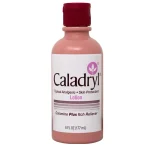Vitamin D is a cornerstone of good health, especially for growing children. Known as the “sunshine vitamin,” it plays a vital role in bone health, immunity, and overall development. Despite its importance, many children do not meet their daily vitamin D requirements. Factors such as insufficient sunlight exposure or limited dietary sources often contribute to this deficiency. Introducing a Vitamin D Supplement for Kids can effectively bridge this gap, ensuring children receive the essential nutrients needed for their healthy growth and development.
A Vitamin D Supplement for Kids often provides a practical and effective solution to bridge this nutritional gap. In this article, we’ll explore why vitamin D is essential, the benefits of supplementation, and how parents can ensure their children meet their daily needs for this vital nutrient.
What is Vitamin D?
Vitamin D is a fat-soluble vitamin that plays a crucial role in calcium and phosphorus absorption, which are essential for strong bones and teeth. Naturally synthesized by the skin when exposed to sunlight, this nutrient also supports immune health and neurological function. For kids, adequate vitamin D is a non-negotiable factor in their development.
Why Do Kids Need Vitamin D?
Children are in a phase of rapid growth, which demands optimal nutrition. Vitamin D is indispensable because it:
- Promotes healthy bone formation and prevents deformities like rickets.
- Strengthens the immune system, reducing the risk of infections.
- Supports muscle function and cognitive development.
Without sufficient levels, children are at risk of growth delays, weak immunity, and lifelong skeletal issues.
Sources of Vitamin D
Vitamin D can be obtained from three primary sources:
- Sunlight: Direct exposure to sunlight triggers the skin to produce vitamin D. However, factors like sunscreen use, geographic location, and time of year can limit this natural production.
- Diet: Foods like fatty fish, egg yolks, and fortified milk are rich in vitamin D.
- Supplements: When sunlight and diet aren’t enough, supplements become the most reliable source.
Signs of Vitamin D Deficiency in Kids
Recognizing deficiency early can prevent serious complications. Common signs include:
- Frequent illness and infections
- Fatigue or low energy levels
- Delayed tooth eruption or dental issues
- Soft or brittle bones leading to fractures
- Muscle cramps and aches
Consulting a pediatrician is crucial if these symptoms persist.
Why Consider Vitamin D Supplements?
In today’s busy world, it’s not always possible to meet a child’s nutritional needs through diet alone. Supplements offer an easy and effective way to ensure your child gets enough vitamin D without depending solely on unpredictable factors like weather or diet restrictions.
Choosing the Right Vitamin D Supplement
Selecting the best supplement depends on a child’s preferences and needs. Available forms include:
- Liquid Drops: Ideal for infants and toddlers.
- Gummies: A kid-friendly option for older children.
- Chewable Tablets: Suitable for school-aged kids.
Check labels for age-appropriate dosages and consult with a healthcare provider if unsure.
How to Administer Vitamin D Supplements
Consistency is key when it comes to supplementation. Tips for parents include:
- Incorporate supplements into daily routines, such as breakfast time.
- Use a dropper for infants to ensure accuracy.
- Store supplements out of reach of children to prevent accidental overdosing.
Vitamin D and Bone Health
Vitamin D directly influences calcium absorption, which is critical for building and maintaining strong bones. For kids, a deficiency can lead to rickets—a condition characterized by soft and weak bones.
Vitamin D and Immunity
Boosting the immune system is another vital role of vitamin D, especially for growing children. Research shows that children with adequate levels of vitamin D are less likely to experience severe respiratory infections.
Incorporating a Vitamin D Supplement for Kids into their routine can be a proactive way to support a robust immune system. With its proven ability to enhance immune responses, ensuring your child receives enough vitamin D is essential for their health and resilience against common illnesses.
Daily Recommended Dosages
The American Academy of Pediatrics (AAP) recommends:
- 400 IU/day for infants under 12 months.
- 600 IU/day for children aged 1–18 years.
Can Too Much Vitamin D Be Harmful?
Yes, excessive intake can lead to toxicity, causing symptoms like nausea, kidney issues, and calcium deposits in the blood. Always adhere to recommended dosages and consult a pediatrician.
Top Vitamin D-Rich Foods for Kids
If you prefer natural sources, include these foods in your child’s diet:
| Food | Vitamin D Content (IU) |
|---|---|
| Salmon (3.5 oz) | 447 IU |
| Fortified Milk (1 cup) | 115–130 IU |
| Egg Yolk (1 large egg) | 37 IU |
| Fortified Orange Juice | 100 IU |
Conclusion
Vitamin D is a cornerstone of your child’s health, directly influencing their growth, immunity, and cognitive development. While sunlight and a balanced diet provide valuable sources of this essential nutrient, many children may still fall short of their daily requirements.
In such cases, a Vitamin D Supplement for Kids offers a practical solution to bridge the gap. By selecting the right product and ensuring the correct dosage, parents can support their child’s overall well-being. Remember to consult with your pediatrician and take proactive steps to prioritize this critical nutrient for your child’s thriving growth and development.
FAQs about Vitamin D Supplements for Kids
How do I know if my child needs a supplement?
A pediatrician can perform a blood test to check vitamin D levels.
Are supplements safe for babies?
Yes, liquid vitamin D drops are specifically formulated for infants.
Can I skip supplements during summer?
Not necessarily; it depends on sunlight exposure and diet.
What are the risks of deficiency?
Growth delays, weak bones, and increased infection risk.
Should I choose natural or synthetic supplements?
Both are effective, but consult your doctor for specific recommendations.
Can vitamin D improve my child’s mood?
Emerging research suggests a link between vitamin D and improved mental health.











